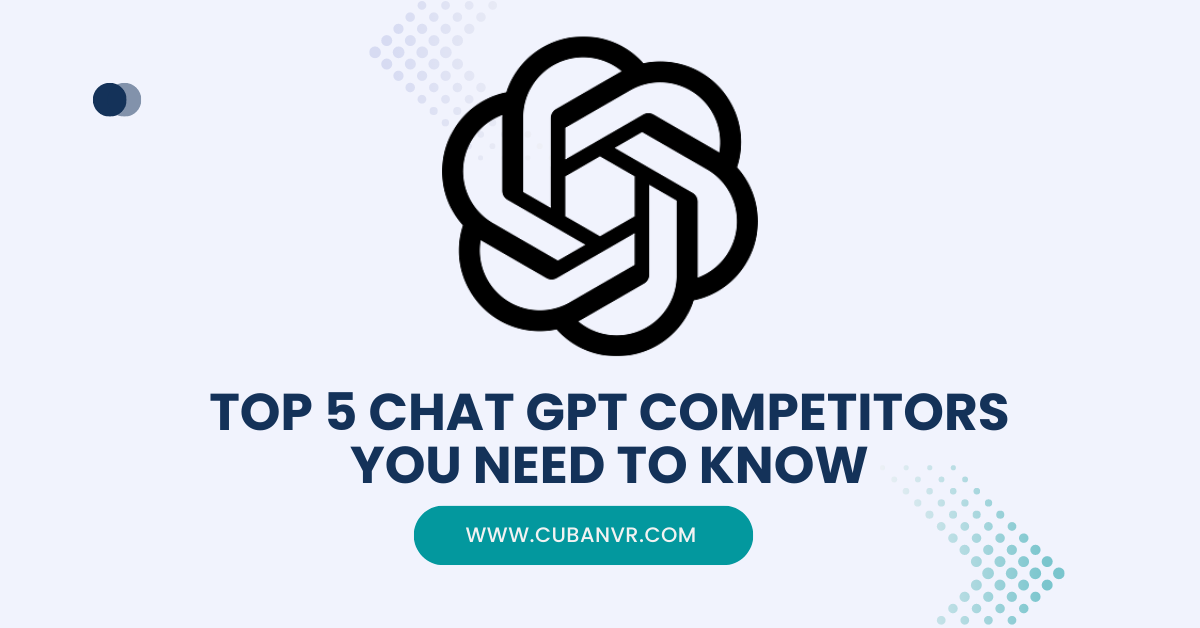What is the best competitor of ChatGPT? The captivating AI chatbot by OpenAI, ChatGPT, has skyrocketed in popularity since its general release in November 2022. People are doing amazing things with the chatbot, as shown in their social media feeds.
The application is useful for job searchers, programmers, high school teachers, content creators, and professionals in practically every industry. As artificial intelligence (AI) technology continues to advance, various companies and research teams are developing their own AI-powered conversation models to rival OpenAI’s ChatGPT.
These competitors are shaping the landscape of AI-driven conversations and offering unique features and capabilities. In this article, we will delve into the top five ChatGPT competitors, highlighting their strengths and what sets them apart.
See also: 5 Best ChatGPT Alternatives For Programming
Top ChatGPT Competitors Right Now
1. Microsoft’s DialoGPT
DialoGPT, developed by Microsoft, is one of the most prominent competitors to ChatGPT. It is built on a similar foundation as GPT-3 and is designed to engage in coherent and contextually relevant conversations with users.
Key Features
- DialoGPT can provide informative responses on a wide array of topics, leveraging its extensive training dataset.
- It excels at providing step-by-step explanations and clarifications, making it a valuable educational tool.
- Microsoft has integrated DialoGPT into various interfaces, including Microsoft Teams, to offer seamless business communication.
2. Facebook’s BlenderBot
BlenderBot, developed by Facebook AI, is designed to hold multi-turn conversations with users. It emphasizes longer interactions and context retention, aiming to provide more human-like and engaging conversations.
Key Features
- BlenderBot is engineered to generate empathetic and emotionally intelligent responses, enhancing user engagement.
- It attempts to provide responses that reflect everyday human knowledge and reasoning, offering more relatable conversations.
- it refines its responses over time.
3. Rasa Open Source Framework
Rasa is an open-source conversational AI framework that empowers developers to build their own AI chatbots and assistants. It provides a flexible and customizable platform for creating tailored conversational experiences.
Key Features
- Rasa allows developers to create chatbots with domain-specific knowledge and tailored responses.
- It can be integrated with various platforms, including websites, messaging apps, and voice assistants.
- Rasa’s framework enables developers to manage and retain context during conversations, leading to more coherent interactions.
4. Google Bard AI
Google Bard is an experimental conversational AI chatbot developed by Google. The tool is powered by PaLM 2, a powerful language model that is capable of understanding and generating natural language text. Bard is designed to help users bring their ideas to life by providing personalized support and guidance.
Key features of Google Bard:
- Conversational AI: Bard is powered by advanced conversational AI technology that is capable of generating human-like responses to text prompts. This allows users to interact with the tool in a natural and intuitive way, making it easy to get the support and guidance they need.
- Personalized support: Bard provides personalized support and guidance to users based on their specific needs and goals. The tool is designed to help users overcome obstacles and stay motivated, providing them with the resources and information they need to succeed.
- Collaboration: Bard is a collaborative tool that allows users to work together to bring their ideas to life. The tool provides a platform for users to share their ideas, collaborate on projects, and get feedback from others. This can help users to refine their ideas and create more impactful projects.
IBM Watson Assistant
IBM’s Watson Assistant is an AI-powered conversational platform that allows businesses to build chatbots and virtual assistants for various applications, from customer support to information dissemination.
Key Features
- Watson Assistant is tailored for business and enterprise applications, providing solutions for customer interactions and service support.
- It can be integrated with existing business systems and databases, offering a seamless user experience.
- Watson Assistant supports multiple languages, catering to diverse user bases.
See also: 10 Best ChatGPT Free Website Alternatives
FAQs
Is there anything better than ChatGPT?
Microsoft Bing AI is now one of the best ChatGPT options available on the market. The updated ChatGPT model, which the business initially referred to as the new “Prometheus model” but later identified as GPT-4, powers the redesigned search engine.
Is there an equivalent to ChatGPT?
Yes, there are other free alternatives to ChatGPT available, including Bard, Bing, Claude, Character AI, and many more.
Is there any competition for ChatGPT?
Google’s Bard AI is a respectable substitute for ChatGPT. The most effective and popular ChatGPT substitute that is independent of OpenAI’s GPT language model is undoubtedly Bard.
Conclusion
The AI conversation space is evolving rapidly, with several robust competitors challenging ChatGPT’s dominance. Each competitor brings its own unique features and capabilities, catering to different user needs and scenarios. As these technologies continue to develop, users can expect even more advanced and engaging conversational experiences, ultimately transforming the way we interact with AI-powered systems.
